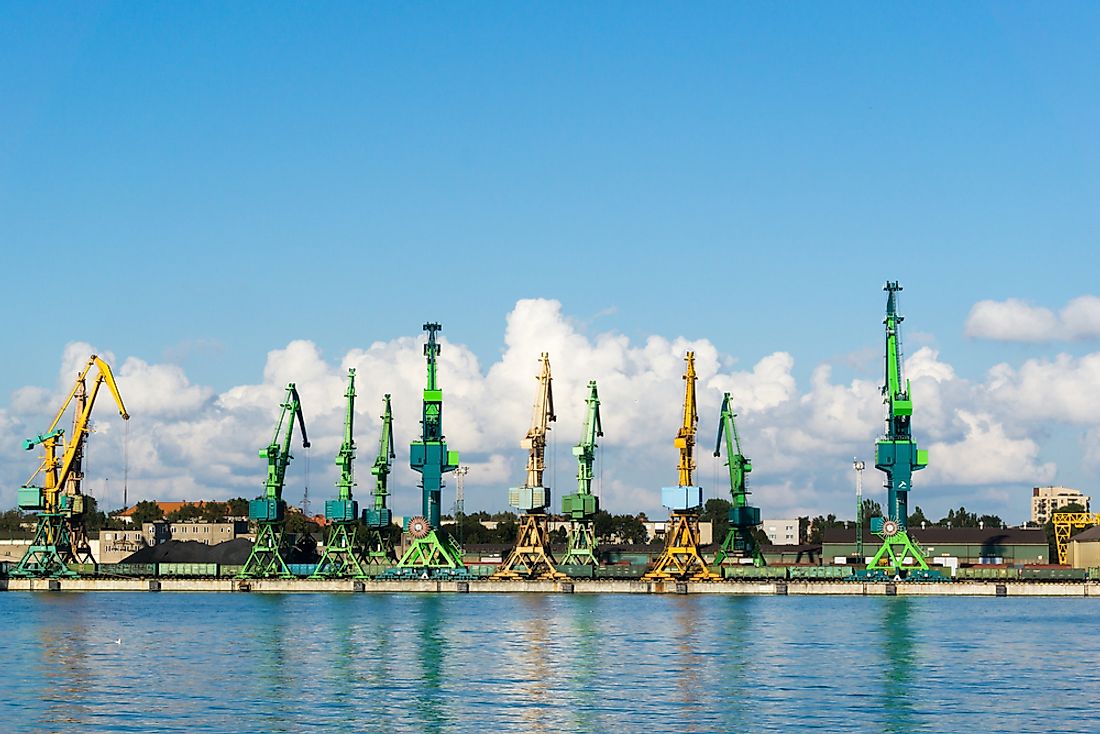What Are The Biggest Industries In Lithuania?

Lithuania is a country in the Baltics of Northern Europe. Lithuania is bordered by Kaliningrad Oblast, Poland, Belarus, and Latvia. Lithuania occupies an area of about 25,200 sq miles, and its largest and capital city is Vilnius. Lithuania has the largest economy in the Baltic region and is a member of the EU. Over 95% of Lithuania’s foreign direct investments come from other EU nations. Lithuania is a member of the eurozone, NATO, the Council of Europe, and Schengen Agreement.
The Largest Industries In Lithuania
Manufacturing
The food processing industry is one of the primary Lithuanian sectors, which accounts for 11% of their total exports. There are about 979 food processing companies registered in Lithuania that produce a wide range of products, including dairy products, meat, fish, vegetables and fruits, baked goods and grains, spices, and herbs. The food and beverage sector accounts for over 4.5% of the Lithuania’s GDP and employ 4.6% of the total workforce. Another significant manufacturing activity in Lithuania is a chemical product which accounts for over 12.5% of its total export. Over 80% of the chemicals produced in Lithuania are exported. The furniture production sector employs over 50,000 individuals in Lithuania, with the biggest firms in this industry working together with IKEA.
Financial Services
There are eight international bank branches and nine commercial banks which are licensed to operate in the country by the Bank of Lithuania. A considerable percentage of these banks are owned by international corporations. Lithuania has positioned itself as the primary FinTech hub in the European Union. The Lithuanian government has promised to provide European operational licenses to all potential investors within 3 months and not a whole year like it is in other European states. 35 FinTech firms came to the country in 2017 after the Bank of Lithuania and the government simplified the process of obtaining licenses for various activities of payment institutions and e-money. Lithuania has issued the second most e-money licenses (39licenses) in the EU right after the UK with 128licenses. Lithuania also plans to attract more financial companies that will be looking to invest in other places after the Brexit. Google established a payment firm in Lithuania in 2018.
Agriculture
Farming in Lithuania dates back to the Neolithic era, and it has been one of the most crucial occupations in the country for centuries. The accession to the EU in 2004 resulted in the introduction of a new agricultural era. The European Union pursues very high standards of food purity and safety. The Lithuanian parliament passed a production safety law in 1999 and a law on food in 2000. The agricultural reforms in Lithuania were based on these two laws. The farm sector has employed over 8% of the country’s workforce and supplies raw materials to most of the Lithuanian food processing companies.
Tourism
The tourism sector is a very crucial part of the Lithuanian economy, which contributed 5.3% of the GDP in 2016. Some of the main tourist attractions in the country include 22,000rivers and streams, 4 UNESCO World-Heritage sites, 3,000lakes, and a unique coastal region. Over 1.49million tourists visited Lithuania in 2016. A huge number of tourists in Lithuania came from the UK (58,200), Ukraine (84,000), Latvia (143,400), Poland (148,400), Belarus (171,900), Russia (15,600), and Germany (174,800). Bicycle tourism is quite popular in the country, especially in the Seaside cycling routes which are 2,342miles long. Hot air ballooning is popular in Trakai and Vilnius. Tourists visit some of Lithuania’s big cities (Kaunas, Klaipeda, and Vilnius), seaside resorts (Palanga and Neringa), and Spa towns (Birstonas and Druskininkai).
Other Industries
The ICT (information and communication technologies) is one of the main sub-sectors in the country that has employed over 37,000people. There are over 2,000ICT firms in Lithuania. Lithuania is home to 13 out of the 20 biggest IT firms in the Baltic region. The country exported €128million worth of ICT services during the second quarter of 2018. Some of the most promising subsectors in Lithuania include business process outsourcing and shared services. Some of the international companies that have outsourced some of their operations to Lithuania include Western Union, Yara international, and Barclays among others.











